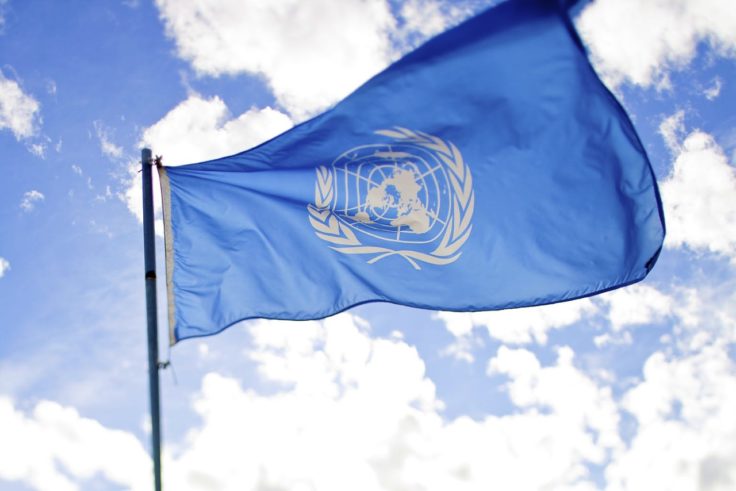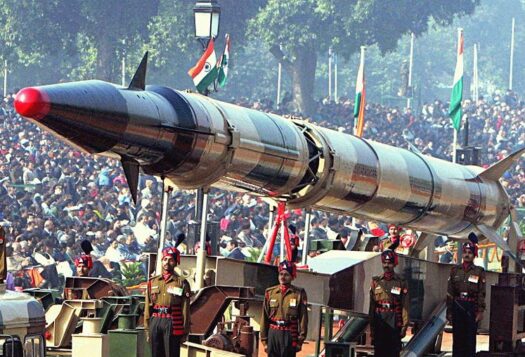
Calls to ban the bomb are as old as the bomb itself. From the founding of the Federation of American Scientists (1945) to the Russel-Einstein manifesto (1955) and recently, the Humanitarian Pledge (2014), politicians, nuclear scientists, scholars, and activists have persistently campaigned against the use of nuclear weapons, urging states to exercise maximum restraint or dismantle their arsenals before they might irrevocably annihilate mankind. Yet the states that have agreed to outlaw nuclear weapons are the ones that do not possess them, and consequently their voices hardly matter. Except under the 1968 Treaty on the Nonproliferation of Nuclear Weapons (NPT) and the 1995 Comprehensive Nuclear-Test-Ban Treaty (CTBT), nuclear-armed states have refrained from legally binding themselves to renounce their arsenals. The CTBT, despite tireless efforts by its advocates, remains largely an instrument on paper, while the NPT has its own reasons for failure. First, it only attracted states that did not want the bomb and failed to convince those that did (Israel, India, Pakistan, and North Korea) to get on board. Second, the states that agreed to renounce their nuclear weapons under Article VI of the treaty (the United States, Russia, the United Kingdom, France, and China), agreeing to “pursue negotiations in good faith [to take] on effective measures…[toward] complete disarmament” have not lived up to their commitments.
Against this backdrop, the recent United Nations Resolution L.41 is extremely important. Adopted on October 27, with 123 states in favor, 38 against, and 16 abstaining, the resolution lays down the necessary groundwork for a “legally binding” multilateral treaty that seeks to outlaw and eventually eliminate all nuclear weapons, no matter which states possess them. Though it may seem like a long shot, the de facto nuclear-armed states, or NPT outliers, have less reason to worry than their de jure counterparts, the NPT states. Since the P5 states were the first to acquire nuclear weapons and have failed to dismantle them despite their legal obligation to do so, they will be subject to the most criticism and pressure.
Nevertheless, states like Pakistan are not free to stop worrying. If the past is any indication, regardless of how other nuclear states choose to respond, Pakistan is once again likely to come under international pressure to junk its nuclear weapons, either as part of an international or regional arrangement or on its own. However, the argument that Pakistan is too poor to afford nuclear weapons would not be the reason for such pressure this time around – nor would the argument that Pakistan is an irresponsible state and is better off without the bomb. Concerns that the “world’s fastest growing nuclear arsenal” warrants curbs does not seem to be the dominant reason for Pakistan to accept limitations either, let alone completely roll back its nuclear program.

Instead, this time the reason is more normative than positive: the elimination of nuclear weapons is a noble cause that Pakistan should adhere to. The advocates of nuclear disarmament—states as well as individuals—argue that nuclear weapons are “weapons of mass destruction.” They are more detrimental than useful for states. Even if they somehow come in handy, their costs and dangers far outstrip the benefits that mankind and the planet can collectively harness. They are not conventional weapons of war, and their effects—radiological or otherwise—are not confined to belligerent states. Thus, on humanitarian grounds, the ideal scenario would be to ban and finally eliminate them.
Nonetheless, as noble as this goal may be, the United States seems to be the least persuaded when it comes to endorsing and participating in UN Resolution L.41 negotiations. Speaking at the Conference on Disarmament (CD), U.S. Special Representative Robert Wood explained, “The U.S. would refuse to participate in the negotiations over a nuclear ban if [the resolution] passes.” States rarely renounce the “absolute weapon” that guarantees their national survival. Russia, the United Kingdom, France, China, India, and Pakistan are more likely to follow than defy the United States, their nuclear bellwether. Although Pakistan, along with India, has abstained from voting, at least for now, it is highly unlikely that it will join the resolution unless all states, in particular India, do.
Resolution L.41 will fail for the same reasons that the NPT and CTBT have: opposition or non-compliance by the P5 states, a treaty’s inherent limitation of binding only those states that consent, and the potential veto by the P5 if the treaty’s compliance is invoked in the UN Security Council. This is not to say that the very exercise of treaty-making at the UN would go in vain. In fact, it would give Pakistan a three-fold opportunity—albeit counterintuitive— to allay reservations about its nuclear program and find some common ground with the West.
First, the notion that “all nuclear states” should join the negotiations and the assumption that all nuclear states—de facto and de jure—are equal will help Pakistan deflect international pressure to limit its nuclear weapons program. Second, this so-called parity will perpetuate the notion that India and Pakistan are alike and should be treated equally. Even if it does not seem to benefit Pakistan directly, for example with its membership in the Nuclear Suppliers Group, it will not directly benefit India either. Since neither India nor Pakistan is party to the NPT, a renewed disarmament call will give Pakistan more leverage to challenge India’s NSG membership on the grounds that an exception for India perpetuates discrimination against Pakistan and other de facto nuclear states. Third, the resolution will create a unique opportunity for Pakistan to once again work closely with the United States and other P5 states for a cause they all share: saying “no” to disarmament. This convergence will allow Pakistan to convince major powers that it is a cooperative partner. In the Cold War era, collaboration with the United States helped Pakistan evade economic sanctions and successfully build the bomb. This opportunity will once again open new avenues for Islamabad to work closely with the United States and allay reservations that the West may have about Pakistan’s commitment to global peace and security and the safety and security of its nuclear arsenal.
Editor’s note: As the UN General Assembly opens negotiations in 2017 on a treaty banning nuclear weapons, SAV contributors Pooja Bhatt, Asan Chaudhary, Hina Pandey, and Sadia Tasleem explore India and Pakistan’s approach to the treaty negotiations, nuclear disarmament, and how each country will position itself on this issue in the years ahead. Read the entire series here.
***
Image 1: Flickr, United Nations Photo
Image 2: Flickr, Sanjitbakshi


